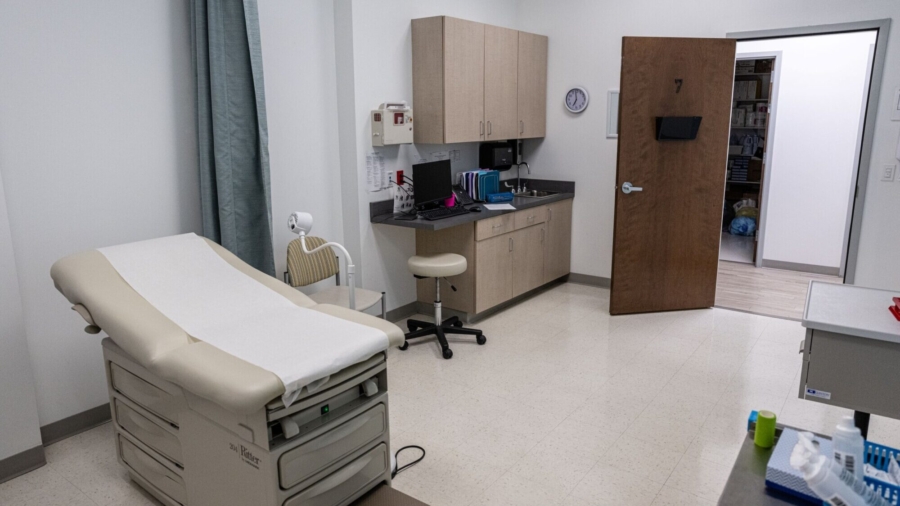A Texas district judge on Aug. 4 issued a temporary injunction that blocks abortion bans in Texas when there are “emergent medical conditions,” pending ongoing litigation concerning the state’s abortion restrictions.
Texas has several abortion laws that collectively prohibit doctors from carrying out abortions after six weeks of gestation, except in medical emergencies. But the language does not clarify what qualifies as a medical emergency.
Travis County District Court Judge Jessica Mangrum wrote in her decision that there has been confusion in the language of the state’s three abortion laws over what conditions would qualify for a medical exemption to allow a doctor to legally perform an abortion on a woman.
Doctors and other medical workers have said the language hasn’t been explicit enough to allow them to provide an abortion until a pregnant woman’s condition had deteriorated to the point where her life was threatened.
Confusion Over Medical Exemptions
It comes in the case Zurawski v. State of Texas, originally brought in March by the Center for Reproductive Rights on behalf of a group of women and two doctors, who sought to have the court define what qualifies as medical exemptions under the law. Eight more women joined the lawsuit in May.
The 13 women in the lawsuit were denied abortions, even though they had been told their pregnancies could pose a risk to their health and safety, their attorneys argued.
Judge Mangrum noted in her decision (pdf) that the plaintiffs “seek a declaratory judgment construing the ‘medical emergency’ exception to Texas’s abortion bans to allow abortion care for pregnant persons with emergent medical conditions, as defined by medical terminology, and contend that a narrower construction would be inconsistent with the rights of pregnant persons and physicians in Texas.”
‘Emergent Medical Conditions’
The judge issued a temporary injunction that bars the state from enforcing its abortion bans and allows doctors to perform an abortion on women who have what she calls “emergent medical conditions.”
According to Judge Mangrum, such conditions, “at a minimum,” include:
- a physical medical condition or complication of pregnancy that poses a risk of infection, or otherwise makes continuing a pregnancy unsafe for the pregnant person;
- a physical medical condition that is exacerbated by pregnancy, cannot be effectively treated during pregnancy, or requires recurrent invasive intervention;
- and/or a fetal condition where the fetus is unlikely to survive the pregnancy and sustain life after birth.
The judge further ruled that any state official who seek to enforce Texas’s abortion bans against a doctor who provides an abortion after the doctor had determined that the pregnant mother has a “physical emergent medical condition” would be exceeding their legal authority.
She applied a similar determination for abortions that would “prevent or alleviate a risk of death or risk to [a pregnant woman’s] health (including their fertility).”
The judge’s ruling is effective immediately and will remain in place until the resolution of the case. She set a trial date of March 25, 2024, to consider the merits of the case.
The state had requested to toss the case. Judge Mangrum dismissed the request in her Friday ruling.
Texas Heartbeat Act ‘Unconstitutional’
The judge separately found that the Texas Heartbeat Act, also known as Senate Bill 8 (SB 8), is “unconstitutional” under Article I, Sec. 13 of the Texas Constitution, but did not further elaborate.
The law bans abortions after a heartbeat is detected—usually around six weeks after conception—unless a medical emergency exists. It has no exception for pregnancies due to incest or rape.
It also has a unique enforcement mechanism in that state officials have no role in enforcing it, but certain private citizens can file lawsuits against anyone who allegedly “aids and abets” in an abortion that violates the law.
‘Clarity to Doctors’
The Center for Reproductive Rights said in a statement on Friday that Judge Mangrum’s ruling “gives clarity to doctors as to when they can provide abortions and allows them to use their own medical judgment.”
The group said that prior to the judge’s ruling, the language in the Texas abortion laws “has resulted in pervasive fear and confusion among doctors as to when they can help patients with severe pregnancy complications.”
“Texas doctors have been turning patients away because they face up to 99 years in prison, at least $100,000 in fines, and the loss of their medical license for violating the abortion bans,” the group said. “This means pregnant Texans are being forced to either wait until they are near death to receive care or flee the state if they are able.”
In her ruling, Judge Mangrum sided with the plaintiffs, writing: “The Court finds that the Patient Plaintiffs each experienced emergent medical conditions during their pregnancies that risked the Patient Plaintiffs’ lives and/or health (including their fertility) and required abortion care, but that Patient Plaintiffs were delayed or denied access to abortion care because of the widespread uncertainty regarding physicians’ level of discretion under the medical exception to Texas’s abortion bans.”
The state had, in calling to dismiss the case, argued the laws were already clear about what constitutes a medical exemption.
State attorneys also asserted the lawsuit was brought because the women were not satisfied with the medical care they received and that what happened to the 13 women was the responsibility of their doctors, not the Texas abortion laws.
“The plaintiffs simply do not like Texas’ restrictions on abortion. This court well knows the purpose of this court is not to legislate or to issue advisory opinions in facts the Texas Supreme Court has upheld that courts are prohibited from doing so,” Assistant Texas Attorney General Amy Pletscher told the judge in July.
From The Epoch Times


